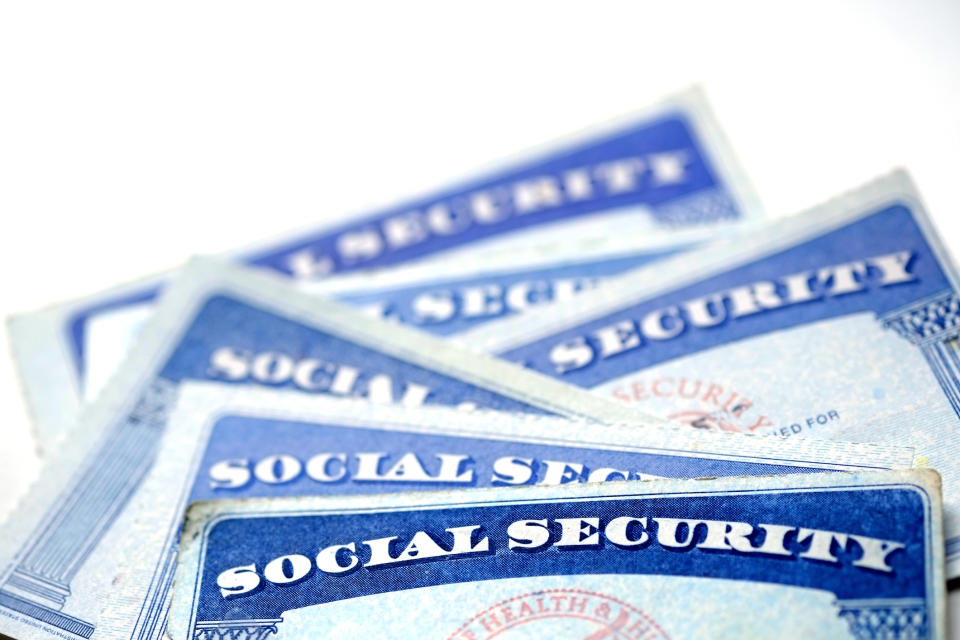3 Smart Social Security Moves
Social Security is a guaranteed source of income in retirement, but the amount you're entitled to isn't set in stone until you sign up for benefits. Up until that point, you can do a lot to influence the size of the checks you receive -- for better or worse. Take these three steps today if you want to maximize your benefits.
1. Verify that your earnings record is correct.
Your Social Security benefit is based on your average monthly income during your 35 highest-earning years, with adjustments for inflation. The Social Security Administration (SSA) keeps records of your taxable income, which you can view by setting up a my Social Security account.

Image source: Getty Images.
Check this at least once per year to verify that the earnings listed there match your own tax records. If the amount listed is incorrect, especially if it's showing no income for a year in which you know you earned money, fill out the Request for Correction of Earnings Record and submit it along with proof of your earned income that year to the SSA.
Allowing errors to go uncorrected could reduce the benefits you're entitled to when you claim Social Security in retirement. At that point it may be too late to do anything about it if you've thrown out your old tax returns and have no proof of how much you actually earned that year. Staying on top of this will ensure the government doesn't accidentally shortchange you.
2. Do what you can to raise your income today.
Anything you can do today that raises your income will also raise your Social Security benefits, unless you earn more than $132,900 in 2019. This is the current ceiling on income subject to Social Security tax, and earning over this amount won't increase your benefit checks anymore.
If you're like most people, working overtime, starting a side hustle, or switching careers could have a significant impact on your income this year and, by extension, the Social Security benefit you're entitled to when you retire. Just make sure you report all the additional income you earn to the government. Failure to do so will increase your risk of an audit, and it won't help your Social Security checks.
3. Decide on the best age to start Social Security.
You're eligible for Social Security as soon as you turn 62, but that isn't always the wisest time to begin taking it. The SSA defines your full retirement age as 66 or 67, depending on your birth year. If you start Social Security before this, the SSA reduces your checks to account for the extra months you're receiving benefits. Starting at 62 will get you only 75% of your scheduled benefit per check if your full retirement age is 66, or 70% if your full retirement age is 67.
The good news is that, if you can be patient, this process also works in reverse. You can increase your checks by delaying benefits past your full retirement age. This maxes out at 70, when you'll receive 124% of your scheduled benefit per check if your full retirement age is 67 or 132% if your full retirement age is 66.
You have to consider several factors when deciding when to start Social Security. If you want the most benefits possible, consider your life expectancy. Multiply your estimated Social Security benefits at 62, full retirement age, and 70 (which you can find in your my Social Security account) by 12 to get your estimated annual benefits for each of these ages. Then multiply that number by the number of years you expect to receive benefits to see which starting age gives you the most benefits overall.
If you expect to live a long life, delaying benefits is probably your best bet, but it may not be an option for everyone. You may have to start taking benefits sooner if you're forced to retire earlier than planned and need them to cover your living expenses. Unfortunately, there's no way to predict what might happen, so all you can do is make an educated guess about the best time to begin benefits and make sure you have plenty of personal retirement savings to cover what Social Security won't.
You may be decades away from claiming Social Security, but it's never too early to start thinking about it. By making the three moves above right now, you can boost your Social Security checks and reduce the strain on your personal savings in retirement.
More From The Motley Fool
The Motley Fool has a disclosure policy.
